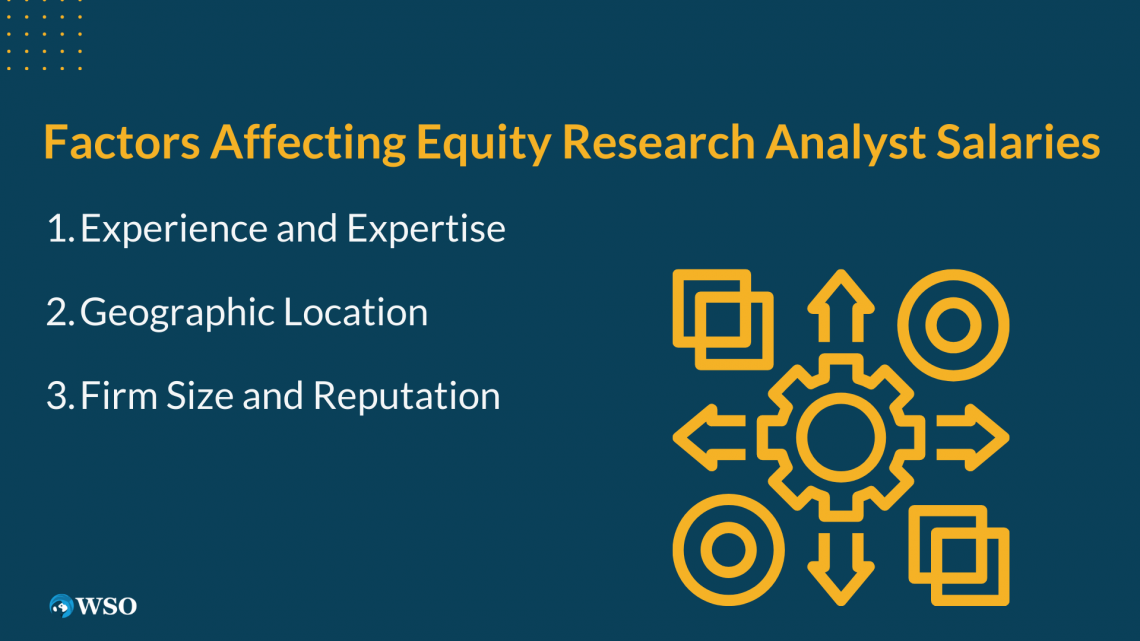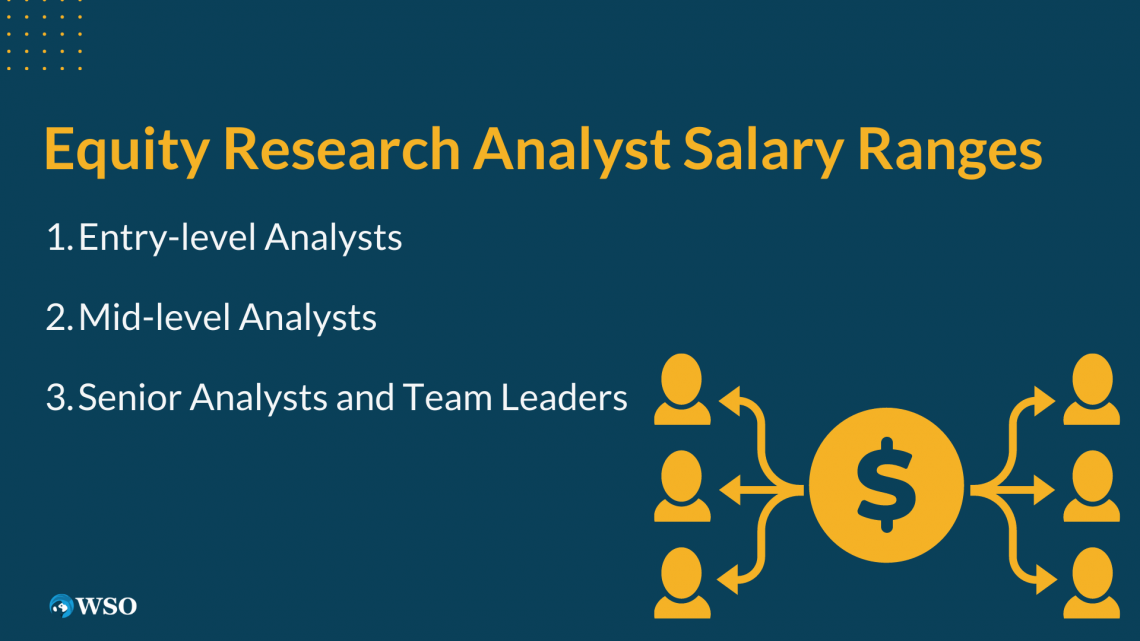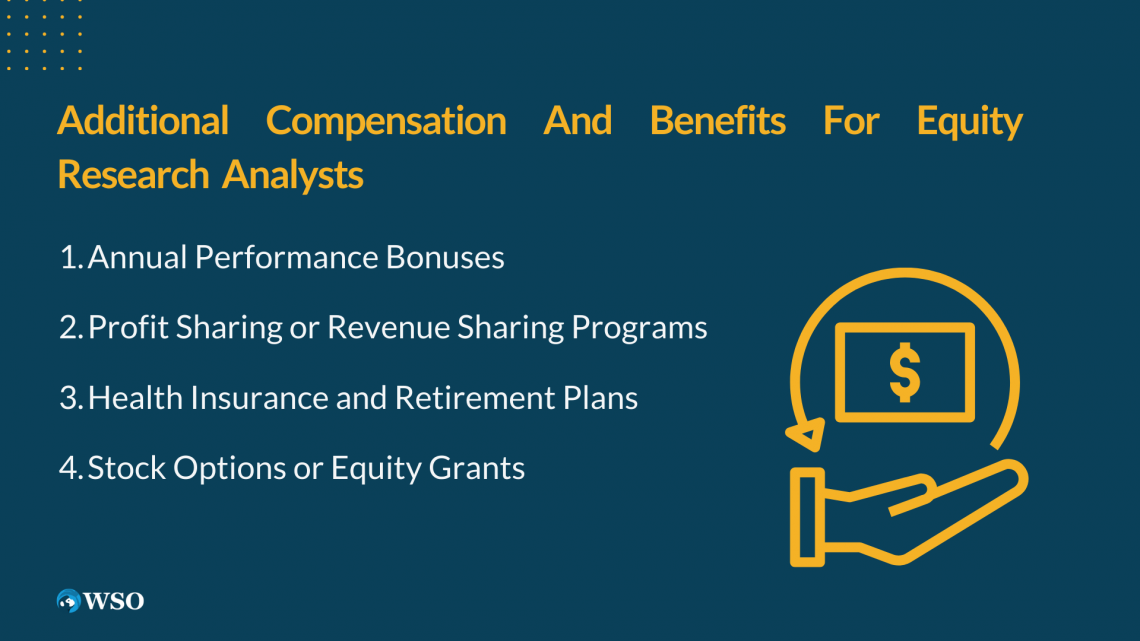Equity Research Analyst Salary Guide
It play a crucial role in the finance industry, offering valuable insights that impact investment decisions and portfolio success.
Equity research analysts are integral to the finance industry as they conduct extensive research and analysis to offer valuable insights and recommendations to investors. Their expertise guides investment decisions, impacting portfolio success.

Understanding the salary landscape is crucial for those considering an equity research analyst career. Salary ranges reflect financial rewards and recognition for expertise and contributions, making it an essential factor in career decision-making.
This salary guide provides valuable information on equity research analyst salaries, covering factors such as experience, education, location, and firm size/reputation that influence earnings. Additionally, it also explores growth opportunities that can lead to higher salaries.
By understanding the salary landscape comprehensively, individuals can make informed career decisions, negotiate fair compensation packages, and plan their financial futures.
Whether you are a recent graduate exploring options or an experienced professional transitioning into equity research, this guide equips you with the knowledge to navigate the dynamic and rewarding profession's salary landscape effectively.
For an overview of the industry's job scope, refer to this comprehensive article.
Key Takeaways
- Equity research analysts play a crucial role in the finance industry, offering valuable insights that impact investment decisions and portfolio success.
- Understanding the salary landscape is essential for those pursuing a career as an equity research analyst, as it reflects recognition and financial rewards for expertise.
- This salary guide provides comprehensive information on factors influencing equity research analyst salaries, including experience, location, and firm reputation.
- By comprehensively understanding salary considerations, individuals can make informed career decisions, negotiate fair compensation, and plan for their financial future.
- Equity research analysts have promising career advancement opportunities, such as becoming senior analysts, portfolio managers, or research directors, leading to higher salaries and increased responsibilities.
Factors Affecting Equity Research Analyst Salaries
Several key factors play a significant role in determining salary. Understanding these factors is crucial for assessing your earning potential in this field.

Let us explore the main considerations:
1. Experience and Expertise
Experience and expertise are important determinants of an equity research analyst's salary. Entry-level analysts with little experience can expect lower salaries compared to their senior counterparts.
You can command higher compensation packages as you gain several years of experience and develop a proven track record of success.
Analysts who have demonstrated outstanding analytical skills, a deep understanding of the financial markets, and possess a unique edge in generating valuable insights for investors are highly sought after.
Their expertise in evaluating investment opportunities and providing accurate forecasts can greatly impact their earning potential.
2. Geographic Location
Geographic location is a crucial factor influencing equity research analysts' salary discrepancies.
Analysts working in financial hubs or areas with a high concentration of financial institutions may have higher salary expectations due to the competitive nature of these markets and the higher cost of living.
NOTE
Analysts working in regions with a lower concentration of financial institutions or areas where the cost of living is relatively lower may earn comparatively lower salaries.
3. Firm Size and Reputation
The size and reputation of your firm can significantly impact your salary. Larger, well-established financial institutions often have more resources and a broader client base, which allows them to offer higher compensation packages.
These prestigious firms are often industry leaders and attract top-tier clients, making their research and recommendations highly influential.
As a result, analysts employed by such institutions may enjoy higher salaries and additional benefits compared to those working for smaller firms or boutique research houses.
NOTE
It is worth noting that boutique research firms can provide unique opportunities for career growth and specialization in specific sectors or investment strategies.
While the compensation may be comparatively lower, these firms often offer a more entrepreneurial environment and the chance to impact a niche market significantly.
By considering these factors, you can better assess your earning potential and make informed decisions regarding your career in the field of equity research analysis.
Equity Research Analyst Salary Ranges
Equity research analyst salaries can vary depending on various factors, including experience, expertise, and job level. Let us explore the different salary ranges within the field:

1. Entry-level Analysts
As a new entrant in the industry, you can expect a yearly salary between $50,000 and $80,000.
While the lower end of the range represents salaries for those starting their career in equity research, the higher end may be attainable for individuals with relevant internships, exceptional academic performance, or specialized knowledge.
Entry-level analysts may initially focus on data collection, financial modeling, and supporting senior analysts in their research activities.
2. Mid-level Analysts
As analysts gain experience and expertise, their salaries tend to increase. As a mid-level analyst with some experience, you can command a salary ranging from $80,000 to $150,000 annually.
Factors influencing salary within this range include the analyst's performance, track record, and the firm they work for. Analysts who consistently provide valuable insights and make accurate investment recommendations may receive higher compensation.
NOTE
Mid-level analysts who work for well-established financial institutions or reputable research houses may have access to better compensation packages.
At this stage, analysts typically have more responsibility and are involved in conducting in-depth industry research, financial modeling, and building relationships with clients. They may also specialize in specific sectors or industries based on their interests and expertise.
3. Senior Analysts and Team Leaders
Senior analysts or team leaders with extensive experience and a proven track record of success can command higher salaries. These professionals often play a crucial role in driving the research process, managing teams, and providing strategic insights to clients.
The salary data for senior analysts and team leaders can vary over a wide range, ranging from $150,000 to $500,000 a year in total compensation. Various factors, such as individual reputation, firm size, and research quality, can influence one’s earning potential.
The salary data for senior analysts and team leaders can vary over a wide range, ranging from $150,000 to $500,000 annually in total compensation.

As senior analysts, individuals are expected to have an in-depth understanding of their sectors, strong relationships with institutional investors, and the ability to generate investment ideas that generate substantial returns.
They may also be responsible for mentoring and overseeing the work of junior analysts within their teams. If you are an exceptional performer, your compensation may well exceed the above amount!
Additional Compensation and Benefits for Equity Research Analysts
Equity research analysts often receive additional compensation and benefits for their base salaries. These incentives are designed to recognize and reward their contributions to the firm's success.

Here are some common forms of additional compensation and benefits:
1. Annual Performance Bonuses
Equity research analysts may be eligible for annual performance bonuses based on individual and team achievements.
Bonuses are influenced by performance indicators that comprise factors such as the reliability of investment recommendations, the success of stock pitches, and overall team performance.
2. Profit Sharing or Revenue Sharing Programs
Some firms offer profit-sharing or revenue-sharing programs to equity research analysts. Under these programs, a portion of the firm's profits or revenues is distributed among eligible employees, including analysts.
This allows analysts to share the firm's success and align their interests with its overall financial performance.
3. Health Insurance and Retirement Plans
Aside from medical insurance plans, firms often offer retirement plans such as 401(k) or pension plans to help analysts save for their future.
4. Stock Options or Equity Grants
Equity research analysts may also receive stock options or equity grants as part of their compensation package. Grants allow analysts to obtain company shares at a predetermined price, allowing them to reap the firm’s growth and success benefits.
Together with stock options, these serve as long-term incentives and can be a valuable addition to an analyst's overall compensation.
These additional compensation and benefits packages vary from firm to firm. Larger financial institutions may offer more generous packages, including a higher percentage of annual bonuses, while smaller firms may provide more modest benefits.
Analysts may receive additional compensation and benefits such as annual performance bonuses, profit-sharing or revenue-sharing programs, health insurance, retirement plans, and stock options or equity grants.
These incentives reward analysts for their contributions, align their interests with the firm's success, and provide financial security and growth opportunities.
Career Map for Equity Research Analysts
Equity research analysts enjoy promising advancement opportunities in their career paths. Analysts progress to more senior roles as they gain experience, develop valuable skills, and establish a track record of success, opening doors to higher salaries and increased responsibilities.

Here are some common advancement opportunities for analysts:
1. Senior Analysts
Senior analysts are highly experienced professionals who have established themselves as experts in their respective fields. They take on more complex research assignments, provide strategic insights, and play a key role in shaping investment strategies.
They often have a broader scope of responsibilities, including mentoring junior analysts and building relationships with institutional investors. Advancement to a senior analyst position usually comes with a significant salary increase and enhanced prestige within the industry.
2. Portfolio Managers
Equity research analysts with exceptional performance and strong investment acumen may transition into portfolio management roles. Portfolio managers must oversee investment portfolios, sign off on investment decisions, and manage client relationships.
Portfolio managers can leverage their research skills and contribute to the firm's investment success. Advancement to a portfolio management position can result in a substantial increase in salary and overall compensation.
3. Research Directors
Some analysts may pursue a career path that leads them to research director positions. Research directors are responsible for overseeing the research department within a firm.
Their role requires them to guide the research team, prioritize long-term goals, and ensure that the quality of research published meets high standards.
Research directors play a crucial role in shaping the firm's research strategy and maintaining the firm's reputation for delivering insightful analysis.
Advancement to a research director role typically comes with increased leadership responsibilities and a higher level of compensation.
These advancement opportunities are not exhaustive, and career paths can vary depending on individual goals, firm structure, and market conditions.
Some analysts may specialize in specific sectors or industries, becoming recognized experts in their chosen fields. Others may explore asset management, investment banking, or private equity opportunities.
NOTE
It is important for analysts to proactively seek opportunities for professional development, such as pursuing advanced degrees or certifications relevant to the field.
Networking, building strong relationships with industry professionals, and staying up to date with market trends can also enhance advancement prospects.
Equity research analysts have promising advancement opportunities within their careers. Analysts can progress to roles such as senior analysts, portfolio managers, or research directors by showcasing their skills, expertise, and proven track record of success.
These advancement opportunities bring higher salaries, increased responsibilities, and the opportunity to impact the financial industry significantly.
Conclusion
Equity research analysis offers finance professionals a fulfilling career path with promising opportunities for growth and attractive compensation packages.

It is vital to conduct thorough research on industry benchmarks and skillfully negotiate compensation based on your qualifications.
The financial markets constantly need expert analysis and insights, providing skilled analysts a chance to thrive and make a substantial impact.
By proactively developing your professional skills, continuously expanding your knowledge, and leveraging your abilities, you can position yourself for success and enjoy the financial rewards of a career in equity research analysis.
Remember, your journey as an equity research analyst is personalized and shaped by individual strengths, perseverance, and dedication. As you embark on this career path, stay open to learning, embrace challenges, and adapt to evolving market trends.
By nurturing your professional network and seeking mentorship, you can gain valuable insights and opportunities for growth. Ultimately, your success in equity research analysis will be defined by your passion, hard work, and ability to deliver exceptional results.




or Want to Sign up with your social account?